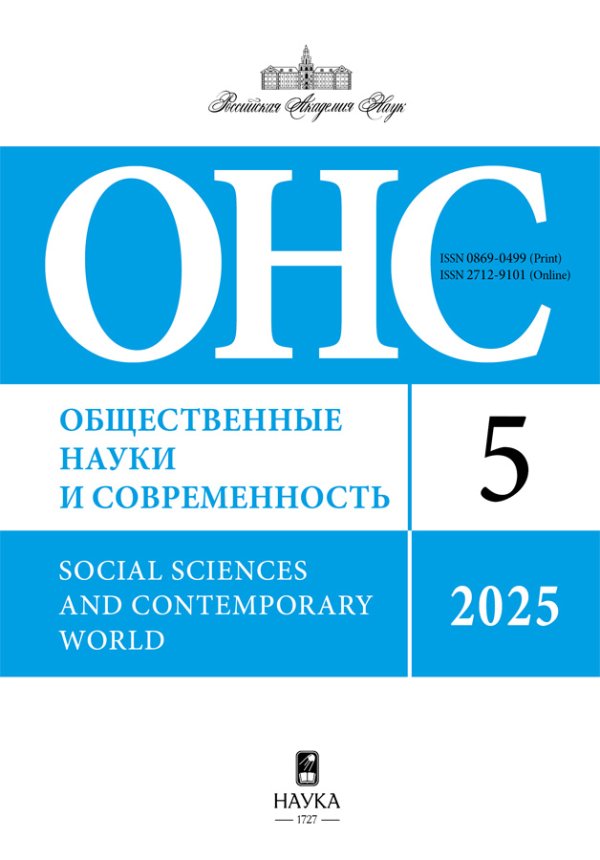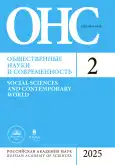No 2 (2025)
Social and economic issues
Principles of CSR and ESG in Russia: the Case of Leading Institutional Actors
Abstract
Corporate Social Responsibility (CSR), the Environmental, Social, and Governance (ESG) agenda, and the principles of sustainable development have emerged as pivotal components of managerial discourse and practice among Russian corporations. Historically, major Russian enterprises have strategically leveraged global CSR and ESG frameworks to enhance their international market positioning, attract foreign investment, and reconfigure environmental, social, and labor relations in alignment with globally recognized sustainability standards. Concurrently, institutional actors – key centers of expertise in CSR and ESG – faced profound challenges in navigating this transformed landscape. The evolution of CSR in the Russian context under the dual pressures of sanctions and deglobalization are examined, analyzing the adaptive trajectories of leading institutional actors, such as specialized committees within the Russian Union of Industrialists and Entrepreneurs (RSPP), the Chamber of Commerce and Industry of the Russian Federation (CCI), and the Russian Managers Association (RMA). The study provides a critical review of international scholarship on CSR and ESG agendas, foregrounding theoretical and empirical critiques of their universalist claims and hegemonic implications. The Russian case is studied on the basis of original research to interrogate how CSR and ESG frameworks are being reconfigured amid geopolitical and economic ruptures. Introducing a novel analytical perspective, the article applies a decolonial critique to examine CSR and ESG awareness in Russia, emphasizing the role of institutional actors in shaping expert knowledge and discursive practices in this domain. Furthermore, the CSR discourse has been co-opted by public administration systems, which increasingly channel corporate social investments – framed as compliance with CSR and ESG imperatives – toward state-prioritized social and infrastructural programs. This article contributes to debates on the geopoliticization of CSR and ESG, offering insights into how non-Western contexts negotiate global sustainability paradigms under conditions of economic decoupling. It underscores the contested nature of CSR as both a tool of corporate legitimacy and a site of ideological struggle, particularly in states navigating post-globalization realities. By foregrounding the agency of institutional actors and the adaptive resilience of CSR frameworks, the study advances understanding of how localized discourses of responsibility emerge in response to systemic disruptions.
 7-20
7-20


The Economics of Creativity and the Prospects of Post-Capitalism
Abstract
 21-34
21-34


The ukrainian crisis and its consequences
The Orange Revolution and Euromaidan: the General and the Particular
Abstract
The Orange Revolution and Euromaidan became the most important events in the history of modern Ukraine, having a key impact on the vector of its development. Earlier, attempts were made in the foreign academic literature to compare both phenomena, but most of the researchers’ conclusions, due to their political bias, do not stand up to serious criticism. Comparative analysis of the Orange Revolution and Euromaidan is presented, based on fundamental scientific methods, primarily the principle of historicism and system approach. Using a wide range of sources, stages of both coups are analyzed, the role of the main actors and specifics of regime change operations in 2004–2005 and 2013–2014. Separately, it is considered why, against the relatively peaceful Orange revolution during the Euromaidan period, outbreaks of violence arose that led to numerous human casualties. The significant number of identified similarities allow to conclude that both color revolutions have the same nature, and the differences between them indicate the flexibility and effectiveness of geopolitical engineering technologies, implemented in Ukraine at the beginning of the XXI century.
 35-47
35-47


Reintegration of residents of the DPR and LPR into the sociocultural space of the Russian Federation
Abstract
 48-61
48-61


Политические исследования
Biden Administration’s Course to Rebuild Euro-Atlantic Solidarity
Abstract
 62-75
62-75


The place and role of the “green party” in the United States’ political system
Abstract
 76-92
76-92


The Role of the Army in Politics of Brazil in the XXI Century
Abstract
 93-103
93-103


Counterintelligence and political spying by the FBI at the beginning of the Cold War (the case of Elizabeth Bentley)
Abstract
 104-113
104-113


Sociology of digitalization
Digital Detox from Social Media among Student Youth
Abstract
 114-127
114-127


Rostrum of a Young Scientist
Political cooptation: conceptual foundations and applicability to Russian politics
Abstract
 128-136
128-136












